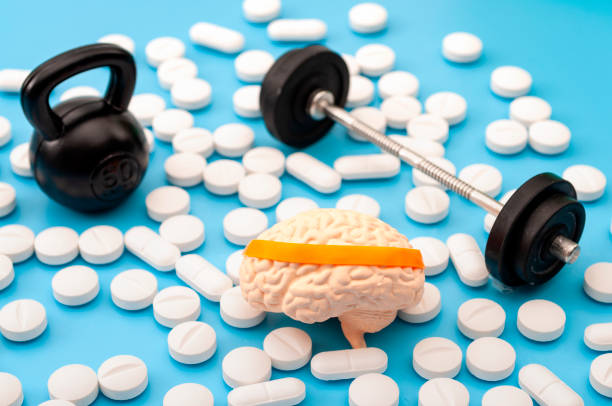Brain Booster Supplements: Uses, Evidence, and Safety
Brain booster supplements are dietary products marketed to support mental performance, including attention, memory, and processing speed. People use them for short-term tasks like studying or to support cognitive function as they age. Ingredients vary widely, from vitamins and minerals to herbal extracts and amino acids; the strength of evidence for each ingredient also differs, so understanding what is backed by research helps set realistic expectations.

This article is for informational purposes only and should not be considered medical advice. Please consult a qualified healthcare professional for personalized guidance and treatment.
How do brain supplements work?
Supplements aimed at the brain typically target biochemical pathways that support neurons, neurotransmitters, blood flow, or cellular energy. Common mechanisms include supplying cofactors for neurotransmitter synthesis (for example B vitamins), acting as antioxidants that protect cells from oxidative stress, modulating blood flow to brain tissue, or supporting mitochondrial function to sustain energy production. Some supplements may also influence receptors involved in attention and mood regulation, which can indirectly affect cognitive function.
Responses vary by individual because genetics, diet, sleep, medication use, and baseline cognitive health influence how a person metabolizes and benefits from a supplement. Over-the-counter formulations are not regulated like prescription medicines, so product quality and ingredient concentrations can differ between brands.
Which supplements target cognitive function?
A few categories of ingredients recur in products that claim to support cognitive function. B-complex vitamins (B6, B9/folate, B12) are often included because they help with homocysteine metabolism and neural function. Omega-3 fatty acids, particularly DHA, are linked to neuronal membrane integrity. Adaptogens and herbal extracts such as ginkgo biloba, bacopa monnieri, and rhodiola are commonly used for their proposed effects on attention and stress resilience. Amino acids like L-tyrosine or precursors such as choline support neurotransmitter production.
Quality matters: look for standardized extracts, third-party testing for purity, and transparency about dosages. Claims on labels may overstate benefits; focusing on ingredients with clinical trial support provides a better basis for evaluation.
What evidence supports memory benefits?
Memory outcomes have been the subject of multiple studies, but evidence strength varies widely by ingredient. Some randomized trials and meta-analyses suggest modest memory benefits from bacopa monnieri and certain standardized ginkgo extracts, particularly for older adults with mild cognitive complaints. Omega-3 supplementation has mixed results for memory in healthy adults but may show benefits in populations with low baseline intake or existing cognitive decline. B vitamins may slow cognitive decline in people with specific deficiencies or elevated homocysteine but show less effect in well-nourished individuals.
Clinical effect sizes are often small and may require weeks to months of consistent use. Expect gradual changes rather than immediate, dramatic improvement, and consider that lifestyle factors—sleep, exercise, and diet—typically produce larger, more reliable memory benefits than supplements alone.
Can supplements improve focus?
Some supplements are studied for attention and sustained focus. Caffeine and L-theanine (often combined as in tea) can produce short-term improvements in alertness and task performance. L-tyrosine has been researched for maintaining cognitive performance under acute stress or sleep deprivation. Rhodiola and certain B vitamins may also support mental energy, though effects differ by dose and individual state.
For chronic attention issues such as ADHD, evidence for dietary supplements is limited and inconsistent; prescription treatments and behavioral strategies should be discussed with a healthcare professional. For situational or transient lapses in focus, supplements can provide modest support when combined with sleep optimization and structured work habits.
Safety, interactions, and choosing supplements
Safety considerations are essential when choosing brain supplements. Herbal extracts can interact with prescription medications (for example, ginkgo can affect blood clotting; some herbal adaptogens interact with antidepressants). High doses of certain vitamins or minerals may cause side effects; excessive B6 over time can lead to neuropathy. Quality control is another concern—contaminants, inaccurate labeling, or variable active ingredient levels have been reported in some products.
Before starting any supplement, review current medications and health conditions with a clinician or pharmacist. Choose products from manufacturers that use third-party testing (USP, NSF, or similar) and provide transparent ingredient lists and dosages. Keep expectations realistic: supplements are most effective as one component of a broader approach that includes sleep, nutrition, exercise, and cognitive engagement.
Conclusion
Brain booster supplements encompass a wide range of ingredients with differing levels of scientific support for cognitive function, memory, and focus. Some compounds have modest evidence in specific populations, while others lack robust clinical backing. Prioritize safety, evidence-backed ingredients, and quality manufacturing when evaluating products, and consider supplements as part of a comprehensive lifestyle strategy rather than a standalone solution.






